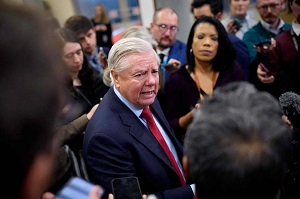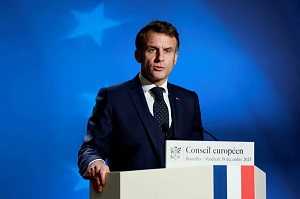Gulf aid should trigger more serious efforts towards self-reliance — pundits
The Jordan Times
AMMAN — The Gulf states’ pledged aid to Jordan will contribute to easing pressures on the Kingdom in some areas, but the country needs to go ahead with necessary reforms to realise self-reliance, economists said on Monday.
Saudi Arabia, Kuwait and the UAE early Monday committed to extending to Jordan $2.5 billion in support for its economy. The pundits said the bulk of the aid needs to go to development projects so Jordanians would feel the impact.
The Gulf states’ aid package includes a deposit at the Central Bank of Jordan (CBJ), guarantees to be presented to the World Bank in favour of Jordan, budget support for five years and funding of development projects by development funds in the three countries.
The experts said the package is prone to help boost foreign currency reserves, reduce Jordan’s cost of borrowing in case of bond issuance, while development projects would help create jobs and drive economic growth.
“The aid will help reduce pressure on the state budget and, in general, ease financial burdens on the Kingdom,” economist Mazen Irsheid told The Jordan Times on Monday.
The deposit at the CBJ will further strengthen the Jordanian monetary position although foreign currency reserves in Jordan at present are at good levels, he noted.
According to the CBJ, foreign currency reserves reached $11.5 billion at the end of April, down by 5.7 per cent when compared to the end of 2017.
“The aid will make Jordan in a situation where it needs to borrow less… It is good, but reforms in Jordan need to continue until we reach a self-reliance stage... and of course, there is a need to fight corruption and ensure protection of the poor while conducting reforms,” he said.
Economist Zayyan Zawaneh said the deposit at the CBJ is a “good thing but has a limited benefit”. However, he indicated that the Jordanian dinar is not under pressure in light of current foreign currency reserves.
“There is a need to focus on spending on development projects and capital expenditure to trigger economic growth which will help create jobs,” he told The Jordan Times on Monday.
He said the guarantees to the World Bank could help strengthen Jordan’s position in case of any future plans to issue international bonds.
“Jordan will be able to get loans at lower interest rates as it is guaranteed by the Gulf states, but borrowing is not recommended as the current public debt is very high and has reached critical levels,” he said over the phone.
Jordan’s public debt reached JD27.69 billion at the end of April, representing about 95.9 per cent of the gross domestic product.
“Annual debt service is about $1.5 billion. We should not borrow more, but the fact remains that the Gulf’s guarantees will help Jordan secure loans at lower interest rates,” he said.
The economist said focusing on development projects is key to addressing high unemployment through creating new jobs.
Jordan, he agreed, needs to move ahead with reforms.
Economist Wajdi Makhamreh echoed similar remarks.
“The Gulf aid package is an opportunity now for the government to go ahead with well-studied reforms so that Jordan would become self-reliant…. We need to use the aid to build a solid economy and strengthen its resilience,” he said.
“Priority should go to implementing projects…. It would be better if a large portion of the aid is allocated for this purpose; we do not need more borrowing,” he said.
“The aid is a positive turn of events and will help Jordan at this stage, but we need to overcome the challenges ourselves by embarking on reforms that are fair and by rationing public spending, endorsing laws that make Jordan more attractive to investments and combating corruption,” he added.
Jamal Al Shalabi, a professor of political science at the Hashemite University, said the aid package to Jordan shows the Gulf states’ understanding of Jordan’s “serious economic conditions”.
“I believe that there is a message to Jordan that this is the beginning of more support to come,” he said on Monday.




